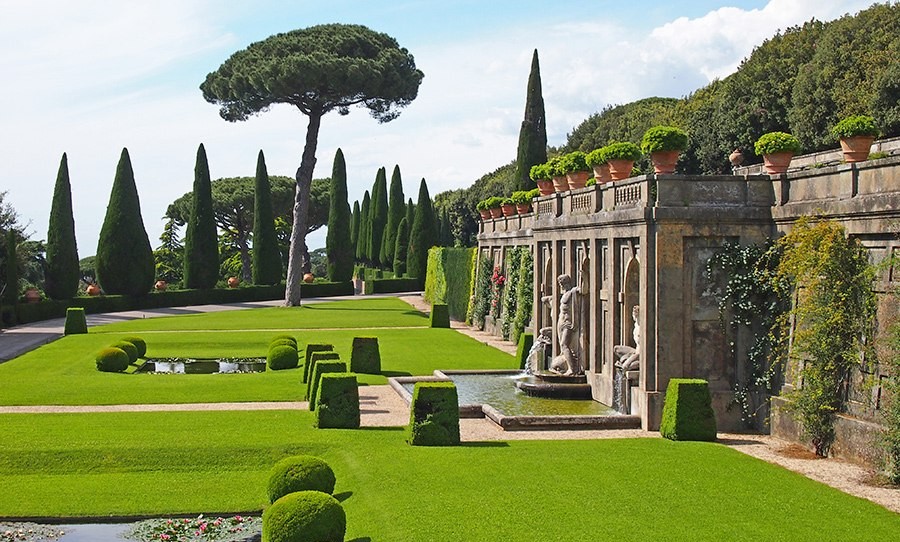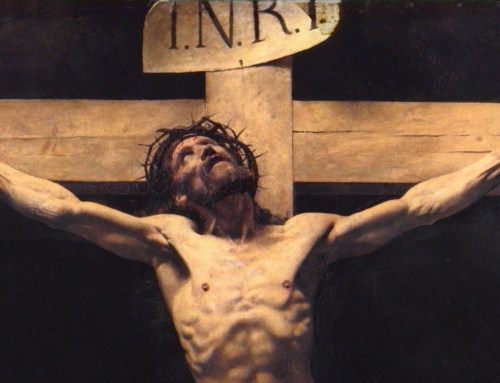Editor’s note: This is the fourth in a five-part series on Pope Francis’ encyclical, Laudato Si’, in honor of the Holy Father’s first visit to the United States.
Only by cultivating sound virtues will people be able to make a selfless ecological commitment (Laudato Si’, §211).
The issue of man’s use of the environment has taken on such a radically divisive tone that it becomes hard to articulate opinions without getting labeled by one side as a science-denying lunatic or by the other side as a tree-hugging lunatic. Either way you’re a crazy.
However, using the practical lessons of Aquinas and Aristotle on politics and anthropology, we can begin to get beyond the political divisiveness concerning the environment.
The human person is a walking paradox. On one hand he has an affinity with the divine in his gift of reason and freedom, but on the other hand he shares appetites with his pet dog and the rat who steals food from his kitchen.
You might think, then, that a theologian like St. Thomas Aquinas—who is preeminent among theologians in his esteem for the gift of reason—would say something like, “Man should have reason dominate his animal passions because reason is his unique gift, an image of the Godhead.”
But St. Thomas has a much more nuanced view of the relationship between man’s gift of reason and his animal appetites. Borrowing from Aristotle’s Politics, Aquinas says that man’s reason should indeed rule his passionate self, but “not by a despotic sovereignty, like a slave by his master, but as free men by their governor, who can act contrary to his commands.”
In short, as a good political principle the ruler is called to govern with moderation and respect of his subject: state over citizen, soul over body, man over creation. If he governs as an absolutist, the subject will rebel and there will be violence and anarchy.
From this analogy, we can get an aspect of Laudato Si’ that is missed by many analysts: the need for personal responsibility and virtue in using and preserving the gift of God’s creation and not only dismissiveness or mere legislation.
It is undeniable that the resources of this earth could be depleted if gluttonous creatures consume more than can be sustained. However, even for those who are concerned about the environment, it’s hard to trust the many models and predictions which smack of an unrealistic apocalypticism. (I remember reading an ad in a Reader’s Digest from the 1970’s which predicted the world would be out of oil in 25 years. Oops.) This generates ill will and causes people, in the words of Pope Francis, “with the excuse of realism and pragmatism, to ridicule expressions of concern for the environment.”
This problem is seen most clearly in the reaction to the encyclical itself. What is a relatively long and complicated treatise on the place of the created world in the context of Christian theology (though ostensibly applicable to all earth’s residents) has been selectively quoted either to support the narrative of a renegade pontiff acquiescing to liberal activists, or conversely to present the encyclical as a rare moment of organized religion finally coming around to “settled science.” However, in the middle of the encyclical is a quote that should guide policymakers in environmental conversion and challenge all people of good will:
Attempts to resolve all problems through uniform regulations or technical interventions can lead to overlooking the complexities of local problems which demand the active participation of all members of the community. New processes taking shape cannot always fit into frameworks imported from outside; they need to be based in the local culture itself. As life and the world are dynamic realities, so our care for the world must also be flexible and dynamic. (§144)
Returning to our political and anthropological analogy above, because the issue of conservation is not clear-cut, the powers-that-be must resist imposing an ideological one-size-fits-all set of regulations that clean up the air and suffocate the citizenry.
At the same time, man’s relation as the chief steward to creation puts him in a relation similar to that of political rulers to their subjects. Man (who has “pre-eminence” within creation) acts towards nature in a way similar to how the soul acts toward the body. The section on “ecological conversion” (§§216-221)—a phrase that Pope Francis borrows from Pope St. John Paul II—reminds us that if each person forgets his responsibility to moderation and “clean” living, he shouldn’t be surprised when creation rebels against her poor treatment. Furthermore, with the reverse dynamic, when individuals fail to live in virtuous moderation, governments could pass oppressive legislation and regulation to restrain unbridled lifestyles. In this scenario, irresponsibility leads to oppressive legalism and totalitarian rule (cf. the dictatorship of relativism applied to the material world).
Activists should recognize the non-absolute nature of their cause and focus on passing common sense legislation that seeks ways to allow human ingenuity and virtue to conserve and preserve. Simultaneously, industry should recognize that profit is not the highest and only good and should prioritize the common good over their own practices (and if they don’t, watch how long it takes for government agencies to come knocking). Individuals should realize that the responsibility to be moderate and preserve creation begins with them, and if they neglect their duty, they will suffer the effects of oppressive intervention.
Primarily, though, the Christian religion is concerned not about consequences but the morality of individual human acts. God has endowed man with prudence, and he is called to exercise it in living his daily life. For instance, the pope must ask himself how many international jet travel trips are ecologically responsible.
Created things are made by God and should lead us to God, but as St. Augustine so famously showed, if we miss God in those created things, they will lead us astray. On a planet being fought over by neo-pantheists and neo-materialists, let us Christians be a strange middling figure: the Christian should love the earth and care for it, while using its resources gratefully and wisely for himself, the crown of creation, in service to God and neighbor.
✠
Image: Garden at Castel Gandolfo







